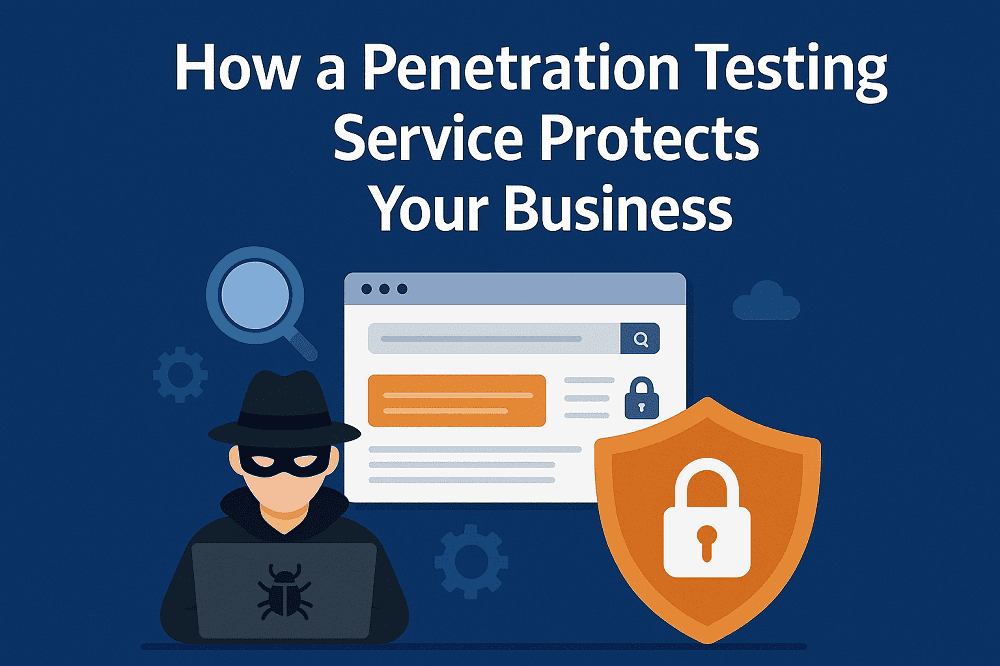How a Penetration Testing Service Protects Your Business

Strong 8k brings an ultra-HD IPTV experience to your living room and your pocket.
Cyber threats are rising fast. Hackers are finding new ways to break into systems. Every business—small or big—is at risk. One smart way to stay protected is by using a penetration testing service. This article explains how it works and how it protects your business.
What Is a Penetration Testing Service?
A penetration testing service, also called pen testing, is a type of ethical hacking. In this process, security experts simulate real-world attacks on your systems. Their goal is not to cause harm but to find weak spots before real hackers do.
The pen testing team gives you a full report. This report shows what they found, how serious it is, and what you should fix. It is a safe and smart way to boost your cyber defences.
Why Your Business Needs Penetration Testing
1. To Find Hidden Vulnerabilities
Not all weaknesses are easy to spot. Some may be deep in your system, hidden from plain view. Pen testers use advanced tools and techniques to uncover these risks. They find issues in networks, applications, and employee practices.
2. To Prevent Data Breaches
Customer data, passwords, and company files are top targets for hackers. If stolen, the damage can be huge. Penetration testing helps prevent this by finding security holes and helping you close them in time.
3. To Avoid Financial Losses
A cyberattack can cost your business money. From system downtime to data recovery, the costs add up quickly. Pen testing helps avoid such losses by keeping your systems secure.
4. To Build Customer Trust
Customers want to feel safe. They want to know their data is in good hands. When your business invests in security testing, it shows that you care. This builds trust and loyalty.
5. To Meet Legal and Industry Rules
Many industries have strict security laws. If you deal with healthcare, finance, or online sales, you must follow these rules. Penetration testing helps you stay compliant with laws like GDPR, HIPAA, or PCI DSS.
How a Penetration Testing Service Works
Pen testing is a step-by-step process. Here is how it usually works:
Step 1: Planning and Scoping
The testing team meets with your business. You discuss what systems to test, the rules of testing, and the goals. This step sets the stage for safe and useful results.
Step 2: Information Gathering
The team collects data about your systems. They learn how your network is set up. They look at public records and system details to understand how to plan their test.
Step 3: Scanning for Vulnerabilities
Using tools, the testers scan your system for weak points. These may include open ports, outdated software, or weak passwords.
Step 4: Exploitation
Now comes the attack phase. The team tries to enter your system using the weak points they found. They act like real hackers but without causing damage.
Step 5: Post-Exploitation
Once inside, the team checks how much control they can get. Can they access files? Can they steal data? This step shows how serious the risks are.
Step 6: Reporting
The team writes a full report. It lists all the problems they found, the level of risk, and what you should fix. This report is easy to read and helps your IT team act fast.
Step 7: Retesting
Once you fix the issues, the team can run another test. This checks if the fixes worked and your system is now secure.
Types of Penetration Testing That Protect Your Business
1. Network Penetration Testing
This test looks at your internal and external networks. It checks routers, firewalls, and servers for open doors hackers could use.
2. Web Application Testing
Websites and apps are common targets. This test checks for flaws like SQL injection, XSS, and insecure login forms.
3. Wireless Pen Testing
If your Wi-Fi is not secure, attackers can break in without stepping inside your office. This test checks for weak points in your wireless setup.
4. Mobile Application Testing
If you have an app, this test looks for risks in iOS and Android versions. It checks storage, permissions, and data flow.
5. Social Engineering Testing
This test targets your people. It simulates phishing emails or fake calls to see if staff fall for scams.
Benefits of Regular Penetration Testing
- Keeps you ahead of hackers
- Reduces chances of costly data leaks
- Supports safe digital growth
- Helps train your staff
- Gives you a security roadmap
Choosing the Right Penetration Testing Provider
- Pick a provider with:
- Certified experts (look for OSCP, CEH, or CREST)
- Experience in your industry
- Clear reports and fast support
- Good reviews and case studies
Also, ask if they provide follow-up testing after fixes.
Conclusion
Cyber threats are not going away. In fact, they’re growing. Every business needs to act fast and stay alert. A penetration testing service is one of the best ways to protect your data, people, and brand.
It’s not just about finding problems. It’s about staying one step ahead of attackers. If you care about your business, invest in penetration testing. It’s the smart, safe, and strong choice for long-term security.
Note: IndiBlogHub features both user-submitted and editorial content. We do not verify third-party contributions. Read our Disclaimer and Privacy Policyfor details.







